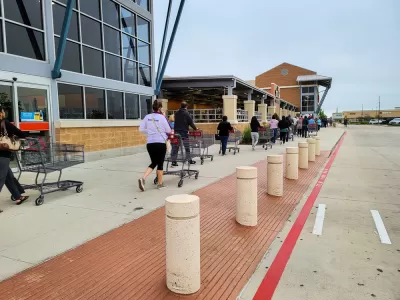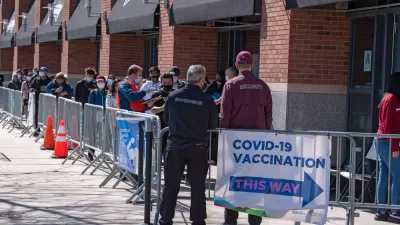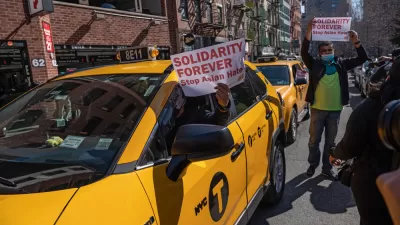Changes are coming, but they don't have to be anti-urban, and they could mean a more resilient world for cities and communities of all shapes and sizes.

Bill Fulton writes a two-part series on the future of cities after the pandemic, premising the entire exercise on two points: that cities have always existed, and that cities have also evolved. Despite the anti-urban messages gaining a larger audience as the coronavirus pandemic takes an especially heavy toll on New York City, Fulton suggests that cities are cleaner and safer than they were a century ago, and that they have thrived for a long time because they are adaptable.
Fulton takes those lessons to mean that cities will surely change as a result of the coronavirus: "The world after COVID-19 will be different — as it is after any disaster. And COVID-19 will accelerate changes that have been brewing in cities for a long time. The result will be a new kind of city, different than what we have seen before. A city that should be able to withstand shocks like COVID-19 in a sturdier fashion."
With more details on each of these points, Part 1 includes a list of predicted changes in cities and the world after the pandemic is over:
- A renewed focus on public health
- More sophisticated urban design
- Fewer retail stores and a different kind of street life
While Part 1 of the series digs into the public life and design of cities, Part 2 focuses more on the private side of life in cities:
- A changing office work environment
- More flexible public transit
- A renewed appreciation for just plain old walking
Fulton states a summarization of these predictions thusly: "Fewer stores but more bars and restaurants — and maybe a more bustling street life. More remote work and therefore more activity in neighborhoods. A more carefully constructed, safer public realm. More flexibility in getting around. All of which will make cities — and their suburbs — better places to live."
FULL STORY: Here’s what our cities will look like after the coronavirus pandemic

Planetizen Federal Action Tracker
A weekly monitor of how Trump’s orders and actions are impacting planners and planning in America.

Restaurant Patios Were a Pandemic Win — Why Were They so Hard to Keep?
Social distancing requirements and changes in travel patterns prompted cities to pilot new uses for street and sidewalk space. Then it got complicated.

Map: Where Senate Republicans Want to Sell Your Public Lands
For public land advocates, the Senate Republicans’ proposal to sell millions of acres of public land in the West is “the biggest fight of their careers.”

Maui's Vacation Rental Debate Turns Ugly
Verbal attacks, misinformation campaigns and fistfights plague a high-stakes debate to convert thousands of vacation rentals into long-term housing.

San Francisco Suspends Traffic Calming Amidst Record Deaths
Citing “a challenging fiscal landscape,” the city will cease the program on the heels of 42 traffic deaths, including 24 pedestrians.

California Homeless Arrests, Citations Spike After Ruling
An investigation reveals that anti-homeless actions increased up to 500% after Grants Pass v. Johnson — even in cities claiming no policy change.
Urban Design for Planners 1: Software Tools
This six-course series explores essential urban design concepts using open source software and equips planners with the tools they need to participate fully in the urban design process.
Planning for Universal Design
Learn the tools for implementing Universal Design in planning regulations.
Heyer Gruel & Associates PA
JM Goldson LLC
Custer County Colorado
City of Camden Redevelopment Agency
City of Astoria
Transportation Research & Education Center (TREC) at Portland State University
Camden Redevelopment Agency
City of Claremont
Municipality of Princeton (NJ)





























